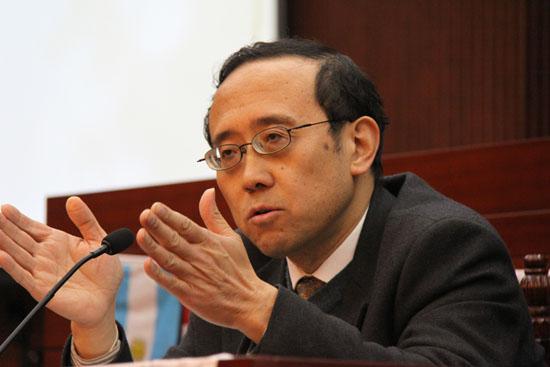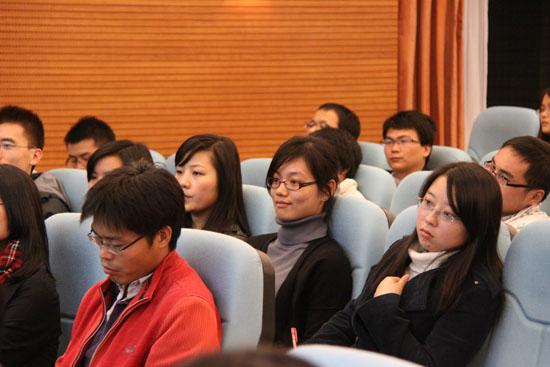January 3rd- Professor Wang Jianwei from the University of Macau gave a lecture on East Asia's Strategic Change and the Sino-U.S. Relationship at GDUFS' South Campus on December 28th. This lecture was organized by the Guangdong Research Institute for International Strategies (GRIIS). Professor Tang Xiaosong and Professor Liu Jisen were also present at the lecture.
American's Strategic Planning towards China -ThreeIsland Chains
During the lecture, Professor Wang mentioned that the U.S. deployed huge military forces in three Island Chains to guard against rising China. The first island chain includes Taiwan, Indonesia, and Japan. The second chain includes the territory of Guam, which the U.S. wants to turn into a super military base. The third chain runs through Australia, New Zealand and their surrounding countries. Besides arranging military force in these three island chains, the U.S. has been constantly elevating Japan's strategic status in recent years.
In East Asia, Japan and Korea are allies of the U.S. In Southeast Asia, the U.S. tried to draw other countries such as Vietnam to its side by conducting joint military exercises. In South Asia, the U.S. interfered with the dispute on the South China Sea between China and India. All these moves are aimed at guarding against China.

Professor Wang was analyzing the Sino-U.S. relationship
The U.S.'s Intervention in Asian Affairs
Since the U.S. became a member of the ASEAN Summit, it has been interfering with Asian affairs. Professor Wang suggested that when analyzing these issues, we should notice that all issues are caused by objective and subjective situations. Take the U.S. as an example. When its domestic reform is not satisfactory, it will strengthen its diplomacy. In the objective respect, since President Barack Obama took office, the wars in Afghanistan and in Iraq are expected to end soon, so the strategic priority of the U.S. will shift to East Asia. Therefore, the U.S.'s involvement in Asian affairs is to be seen at the bottom of the line of China's interests. "But this strategic battle is not finalized yet", professor Wang noted, "We hope this moves towards reconciliation instead of confrontation."

Absorbed audiences
The Influence of Sino-U.S. Relationship
As for the tensions in the KoreanPeninsula, The U.S., China, Russia, Japan and Korea have not reached a consensus. As a result, the situation in the Peninsula is still unclear. "But to some extent, different opinions can boost international cooperation."
Professor Wang also analyzed China's foreign policy. "As the second largest power behind the U.S., China is expected to play a bigger role in global affairs." Besides, due to China's own development, it will inevitably get involved in other region's affairs.
Source: GDUFS News Website





